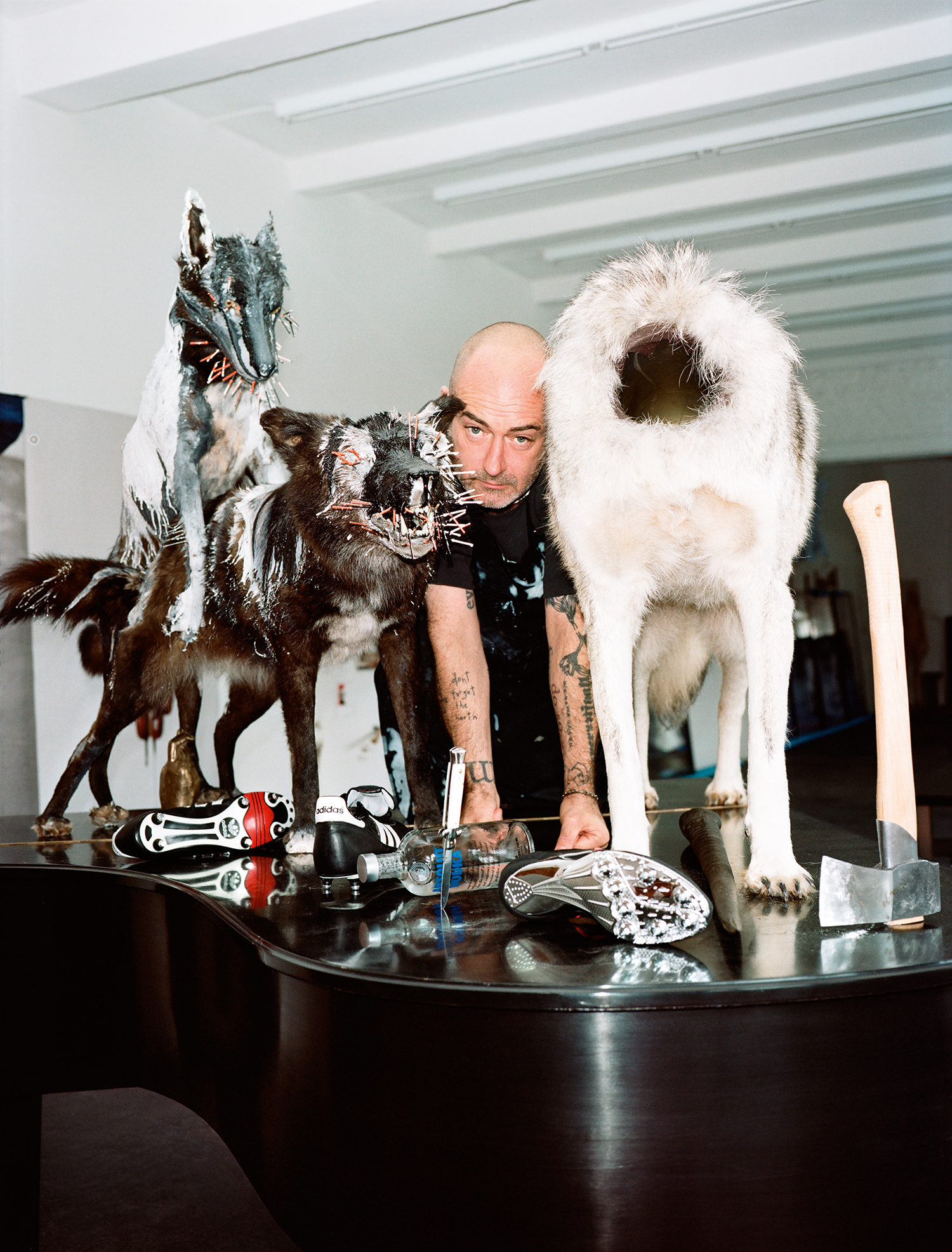Purple Magazine
— F/W 2015 issue 24
Douglas Gordon
misfit marvel
interview by SVEN SCHUMANN
photography by MAXIME BALLESTEROS
Scottish artist Douglas Gordon is best known for his video artworks, ranging from a slowed-down, 24-hour version of Hitchcock’s Psycho to a beautiful film of an elephant lying down in a white New York gallery. But the art world is not the only one to admire Gordon’s work. Football fans and film-lovers alike raved about his feature-length film, codirected with Philippe Parreno, Zidane: A 21st-Century Portrait, a study of the most well-rounded football player of his generation. The film follows Zidane for a full 90-minute game and was shot with 17 synchronized cameras. Gordon has also set grand pianos on fire, burned the eyes out of portraits, turned the Park Avenue Armory into a giant lake, and made a solid gold sculpture of two hands, which was famously stolen from Christie’s. His next endeavor awaits us in the…
